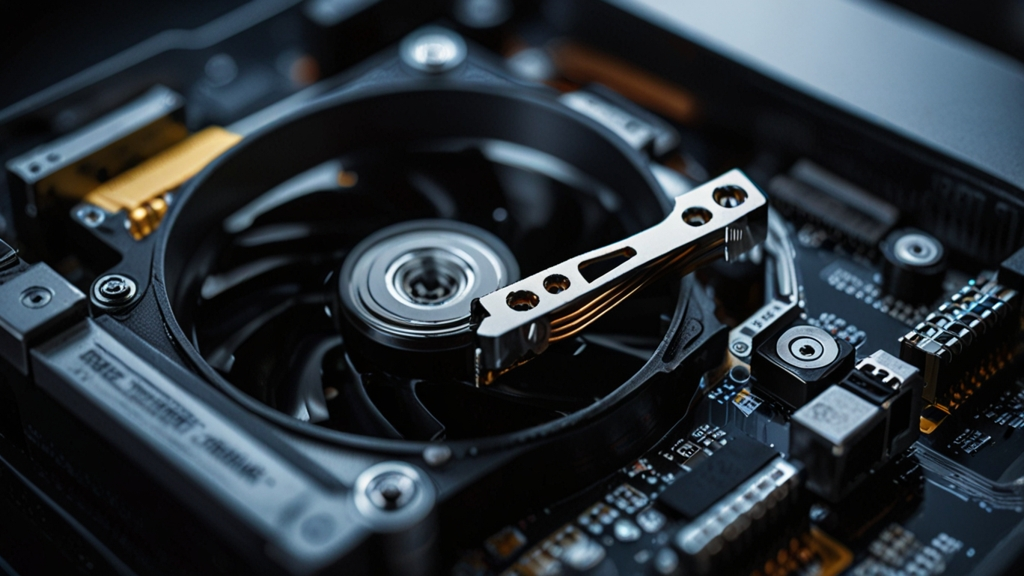Encountering the error code EPSA 2000-0134 can be frustrating, mainly when you rely on your computer for essential tasks. This error is often related to hardware diagnostics, particularly in Dell systems, and points to an issue with the hard drive or system setup. In this article, we’ll explore how to fix EPSA 2000-0134 with step-by-step instructions that anyone can follow.
What Is EPSA 2000-0134?
How to fix EPSA 2000-0134 appears during the Enhanced Pre-Boot System Assessment (EPSA), a diagnostic tool Dell devices use to detect hardware malfunctions. This specific code usually highlights problems with the hard drive, such as read/write errors or connectivity issues.
Causes of EPSA 2000-0134
To effectively learn how to fix EPSA 2000-0134, identifying its root cause is essential. Here are some common reasons:
- Corrupted Hard Drive: A damaged or failing hard drive may lead to this error.
- Loose Connections: Improperly connected cables can disrupt communication between the hard drive and the motherboard.
- Outdated Firmware: An outdated BIOS or firmware can cause diagnostic errors.
- Power Issues: Sudden power outages or fluctuations can damage the hard drive.
Symptoms of EPSA 2000-0134
Recognising the symptoms associated with how to fix EPSA 2000-0134 can help you diagnose and resolve the issue faster. Symptoms include:
- Unusual noises from the hard drive.
- The system freezes or crashes frequently.
- Inability to boot into the operating system.
- Repeated appearance of the error during diagnostics.
How to Fix EPSA 2000-0134: Step-by-Step Solutions
1. Restart Your System
Restarting your computer is the first step in addressing how to fix EPSA 2000-0134. This may clear temporary glitches causing the error.
2. Run Diagnostics Again
Rerun the Enhanced Pre-Boot System Assessment to confirm the error. Follow these steps:
- Turn off the computer.
- Boot Up and Immediately Press F12 Repeatedly.
- Select “Diagnostics” from the menu.
If EPSA 2000-0134 persists, proceed to the next steps.
3. Check Hard Drive Connections
A common cause of EPSA 2000-0134 is loose or faulty cables.
- Power off your computer and unplug it.
- Open the case (if it’s a desktop) or access the rigid drive panel (for laptops).
- Inspect the SATA and power cables for any disconnections or damage.
- Reconnect the cables securely.
4. Update BIOS
Outdated BIOS firmware can cause diagnostic errors. To fix this:
- Visit the manufacturer’s website (e.g., Dell Support).
- Update Your System, Search for Latest BIOS Release.
- To ensure a smooth update process, carefully adhere to the instructions.
5. Perform a Hard Drive Test
Testing the hard drive for errors is vital to address how to fix EPSA 2000-0134. Use a built-in tool or third-party software such as:
- Windows CHKDSK:
- Open Command Prompt as an administrator.
- Type chkdsk /f /r and press Enter.
- Allow the scan to complete.
- Complex Drive Testing Tools: Tools like CrystalDiskInfo provide detailed health reports for your drive.
6. Replace the Hard Drive
If diagnostics confirm that the hard drive is failing, replacing it is often the only solution.
- Purchase a compatible replacement drive.
- Back up any accessible data from the old drive.
- Install the new drive and reinstall your operating system.
7. Reinstall the Operating System
Reinstalling the operating system can sometimes resolve software-related issues causing how to fix EPSA 2000-0134. Ensure you back up your data before proceeding.
8. Seek Professional Help
If you’ve tried the above steps but are still facing the issue, it’s time to consult a professional technician.
Preventing EPSA 2000-0134
Prevention is always better than cure. Here’s how to avoid encountering how to fix EPSA 2000-0134 in the future:
- Regular Backups: Keep your important files backed up to an external drive or cloud storage.
- Update Firmware: Regularly update your BIOS and system firmware.
- Monitor Drive Health: Use tools like CrystalDiskInfo to periodically check complicated drive health.
- Stable Power Supply: Use a surge protector or UPS to prevent power-related damage.
Conclusion
Dealing with how to fix EPSA 2000-0134 can seem daunting, but following the above steps makes it manageable. Whether securing connections, updating firmware, or replacing the hard drive, these solutions ensure your system runs smoothly. Understanding how to fix EPSA 2000-0134 not only resolves the issue but also equips you to handle similar errors in the future.
FAQs
Q1: What is EPSA 2000-0134?
EPSA 2000-0134 is an error code indicating a hardware issue, typically related to the hard drive, during Dell’s Enhanced Pre-Boot System Assessment.
Q2: Can a loose cable cause EPSA 2000-0134?
Loose or disconnected cables between the hard drive and motherboard can trigger this error.
Q3: Is replacing the hard drive the only solution to fix EPSA 2000-0134?
Not necessarily. While replacing the drive is required if it’s failing, other solutions, like updating the BIOS or checking connections, might resolve the issue.
Q4: How can I prevent EPSA 2000-0134?
Regular backups, firmware updates, drive health monitoring, and a stable power supply can help prevent this error.
Q5: Should I seek professional help for EPSA 2000-0134?
Professional assistance is recommended if you cannot fix the issue using the outlined steps.
Following these guidelines will give you the knowledge and tools to address EPSA 2000-0134 effectively.

